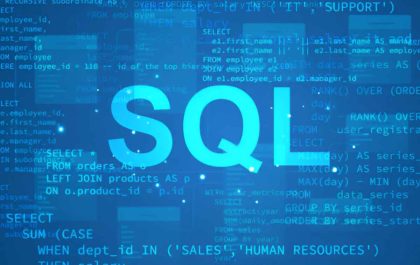Music is considered the universal language of humankind. Combining rhythm and tone to create an excellent melodic line is the purest form of art. The music transcends time, space, and culture to elevate mood, reduce stress, relieve depression, ease pain, and stimulate memories. That’s why the music industry has witnessed a substantial growth rate over the past few decades. New platforms and mediums have wholly reshaped how audiences connect with artists.
With the development of artificial intelligence, it has become more accessible and affordable for many aspiring musicians across the globe to create and produce high-quality, professional-sounding music. Simply put, artificial intelligence in music has led to mass creation from mass consumption. If you want to learn about the basics of music production, pursue a live Sound program in Montreal, Canada, to become an expert in working with industry-standard audio software and equipment to create the perfect sound for various events.
Now that you wish to venture into music production, here are the basics of music production that you must learn to thrive in the field.
Table of Contents
Toggle1. Songwriting
To get started with songwriting, you must know all its elements. Studying a live sound program equips you with the skills for writing commercially-viable songs. The course covers the creative industries, songwriting techniques, songwriting skills for ensembles, and collaboration and performance. You will also be able to find your niche as a songwriter during the course. To write a memorable song, you must compose a catchy melody, use all kinds of chords, create an impressive rhythm, and focus on sound structure.
2. Arranging
Arrangement plays a crucial role in making a song interesting. If a song has a good beat and melody but is too repetitive, it’s because of an arrangement issue. Choosing the right instrument to play in each section is essential to avoid repetition.
3. Tracking
Tracking records the various instruments used to perform a song. It’s known as tracking because each recorded element uses its own track to control balance and effects separately later. You can create songs using background loops, recording vocals and software instruments, programming your own beats, and mixing effects.
4. Editing
Editing while writing or recording music can distract you. Thus, try to keep editing for a later stage so you can entirely focus on the beat of the music. However, there are no hard and fast rules when editing music. Studying live sound courses will help you perform all major editing tasks on audio.
5. Mixing
Mixing is the art of combining multitrack recordings into a single final track. You can hear every instrument clearly and in-depth if the mix is decent. It will have motion and depth. It will sound good and help the music’s purpose.
Also Read: How Businesses Can Implement and Benefit from Digital Transformation
6. Mastering
Many producers consider mastering as the last part of the mixing stage. It is typically the final process in music production. Mastering improves the music production quality and prepares it for commercial distribution.
You can develop a strong foundation in music production by pursuing a live sound program. Opt for the course now!
Related posts
Hot Topics
The Perfect Guide to Seamlessly Transition from SQL Server to Snowflake
Whether you are transitioning from an old server to a new one to banish the traditional ETL complexities or just considering…
The Role of EOR Companies in Managing Complex Global Employment Laws
As businesses are multiplying beyond borders, hiring international talent is not a want, it’s a need. However, with increasing opportunities…



